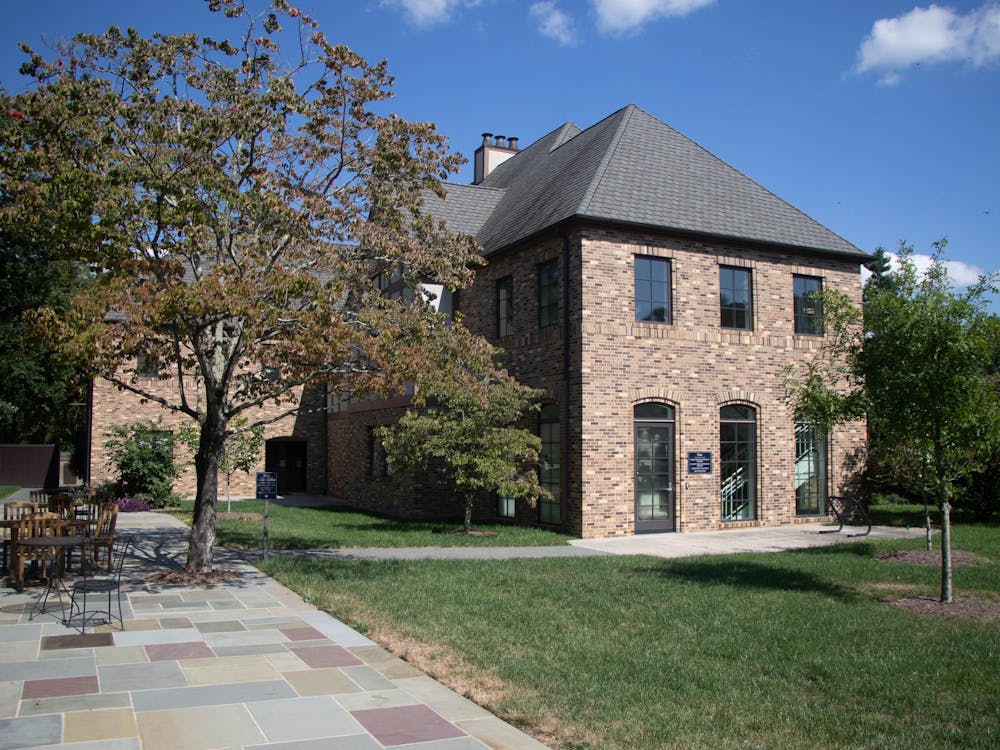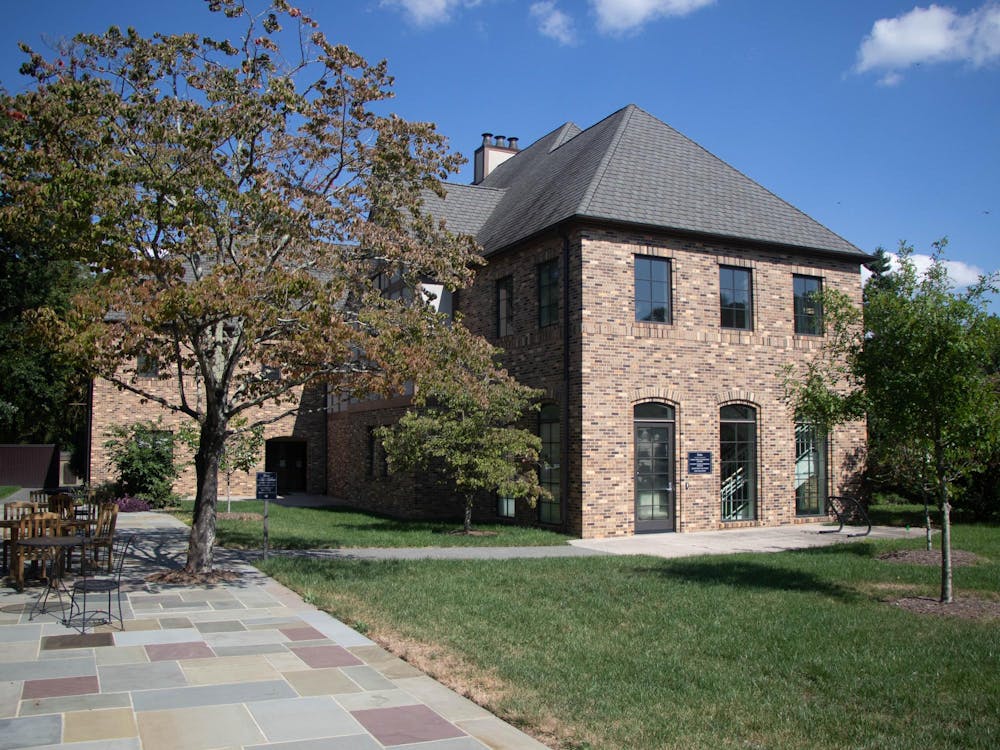
Duke ends full-ride scholarship program for select Black students in wake of affirmative action ruling
The scholarship is named in honor of Reginaldo “Reggie” Howard, Duke’s first Black student government president who died in an automobile accident during his sophomore year in 1976.
Duke ends full-ride scholarship program for select Black students in wake of affirmative action ruling
By Mia PennerApril 10, 2024 | 10:02pm EDT

The Karsh Office of Undergraduate Financial Support.
Photo by Brandon Shintani | The Chronicle
Duke is discontinuing its Reginaldo Howard Memorial Scholarship Program, a program for “top applicants of African descent,” in the wake of last year’s Supreme Court decision that ended race-based affirmative action in college admissions.
The announcement comes amidst a nascent national trend, with a number of public universities ending their own race-based scholarship programs in response to the Supreme Court ruling.
Established in 1979, the merit scholarship, which also required some recipients to demonstrate financial need, covered full tuition, room and board for a select group of Black undergraduates. The scholarship is named in honor of Reginaldo “Reggie” Howard, Duke’s first Black student government president who died in an automobile accident during his sophomore year in 1976.
“It is very much disheartening to hear that this program that opened the door for me to come to Duke is now being closed essentially, even though it will take on a new form,” junior Mya Harris said.
In place of the scholarship program, the Office of University Scholars and Fellows is partnering with the Mary Lou Williams Center for Black Culture to establish the Reginaldo Howard Leadership Program. The new program will be open to all undergraduate students, regardless of race, and will “not include a competitive selection process.”
“The Reginaldo Howard Leadership Program will honor Reggie Howard’s legacy by supporting Black academic excellence, intellectual community and leadership on campus through an intentionally designed series of engagement opportunities,” wrote Candis Watts Smith, vice provost for undergraduate education, in the Tuesday email to Reggie Scholars and alumni.
Reggie Scholars were informed of the plan to end the program in a Tuesday meeting. Scholars and alumni also received a follow-up email summarizing the decision, clarifying it was “in light of changes to the legal landscape related to race-based considerations in higher education.”
Philanthropic funding previously allocated to the Reggie Scholarship will go toward the new leadership program along with need-based financial aid, according to the email.
The scholarship provided funding for other activities, such as independent research opportunities and domestic and international learning experiences. All current scholars will continue to receive funding, but no new merit scholarships will be awarded for the Class of 2028 and beyond.
Reggie Scholars said they were not involved in the decision to end the scholarship program.
“We were just kind of told what was happening as it was happening,” sophomore Hannah Gedion said. “We felt very powerless, to be honest with you.”
Historically, 15 to 20 Black students were selected as scholarship finalists per year upon admission to Duke, according to the Reginaldo Howard Scholars’ website, which has been taken down as of Tuesday evening but can be accessed through the Wayback Machine Internet Archive.
Finalists had to display a “commitment to academic achievement, leadership, and community service and social justice.” Scholarship recipients were then chosen from the group of finalists after an interview process, with no separate application required for consideration.
“I think the Reggie is a program that has given me a lot over the years,” senior Drew Greene said. “It's given me not only a community, but a group of friends, a group of academic peers that I enjoy spending time with … It has been a fantastic experience, so of course in that regard, I am gutted.”
While some Reggie Scholars are disappointed, many expected the changes given the current admissions landscape and the Title IX complaint filed in September against Duke’s Alice M. Baldwin Scholars program, which alleged that the all-female program engages in “reverse discrimination.”
“We're all frustrated obviously, but we’ve been expecting it for a while, and kind of looking for next steps already,” Gedion said. “We’re trying to find ways to preserve Reggie’s legacy.”
In January, Duke’s Office of University Scholars and Fellows also announced a new timeline for its merit scholarship selection process. Under the “post-matriculation” model, scholarship recipients will be notified about their award, which is awarded partly on the basis of financial need, after enrolling at Duke, rather than before.
Amid the changes, Reggie Scholars hope to continue carrying out the legacy of their namesake.
“We just want to make sure that Reginaldo Howard stays in the conversation in any way, shape or form that we can because he was a very prominent figure in Duke's history, period — not Black Duke's history, not Latino Duke's history, just Duke's history,” Gedion said.


 ”
”